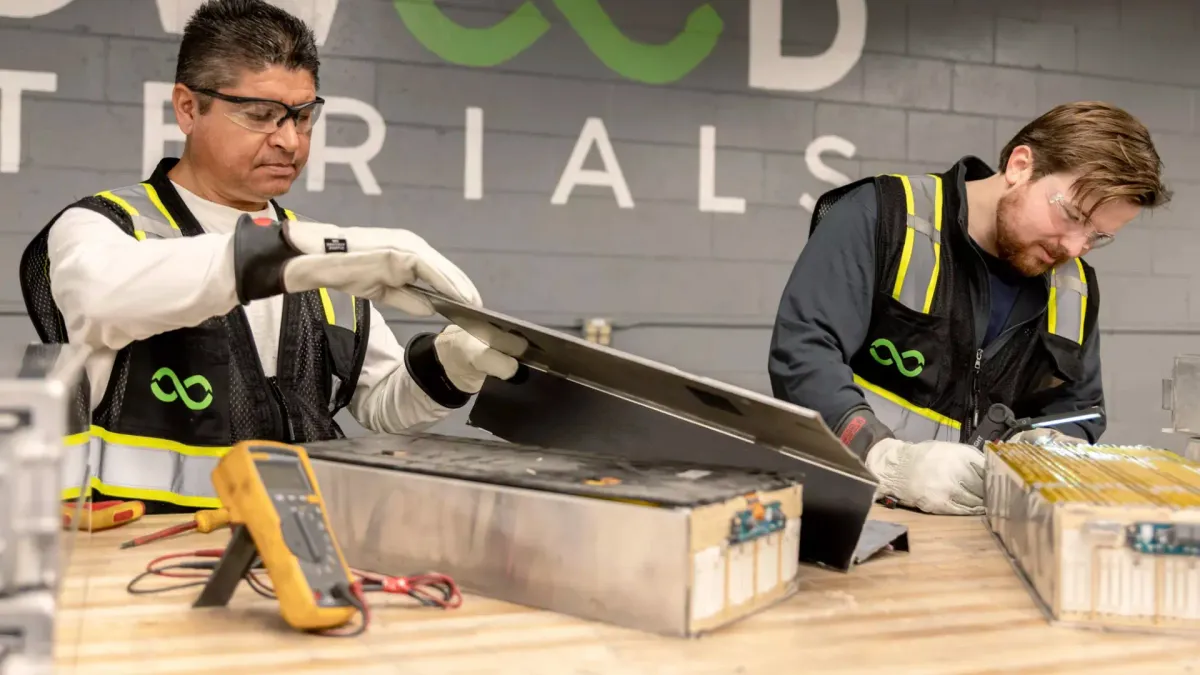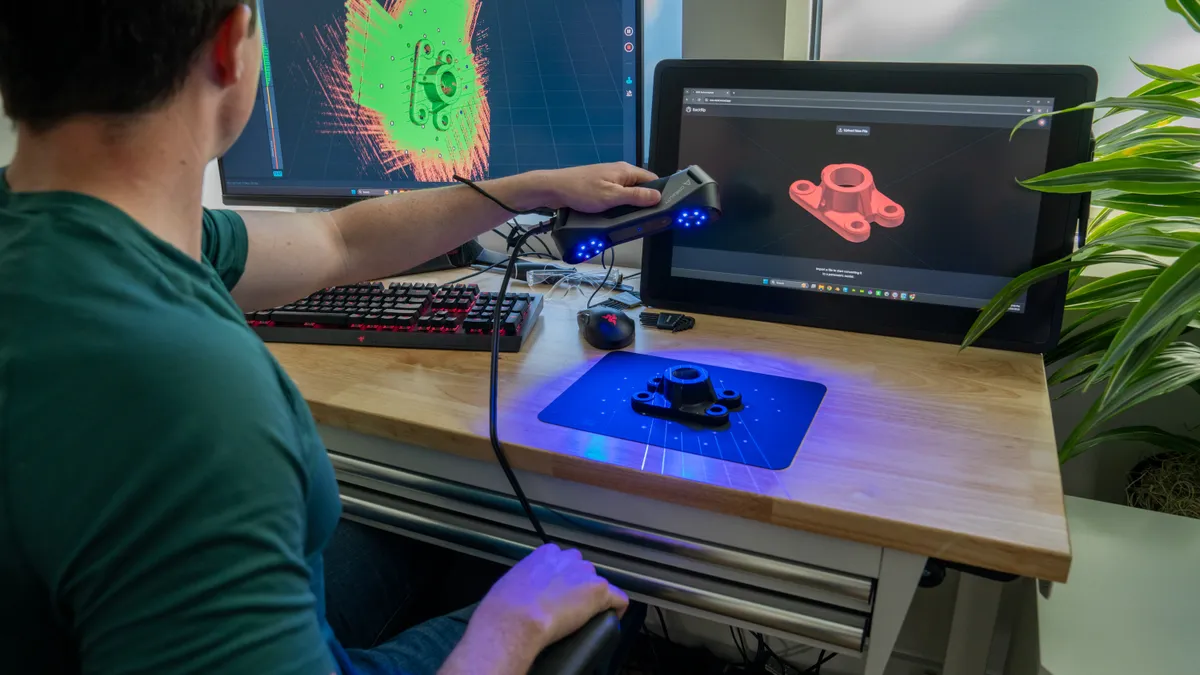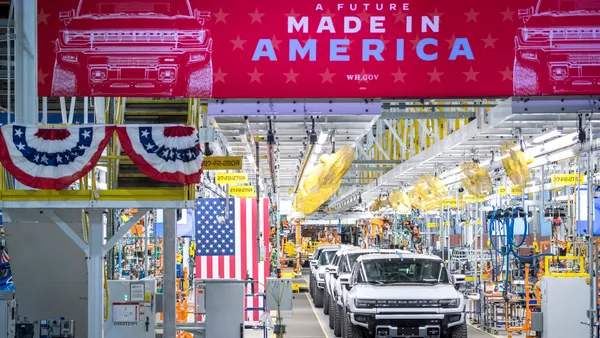Dive Brief:
- Redwood Materials raised over $1 billion during its series D funding round, as it looks to build out its U.S. supply chain, the company said Aug. 29.
- Redwood aims to produce 100 GWh of cathode and anode components per year by 2025, which is enough to manufacture battery cells for around 1 million EVs annually.
- Redwood previously received a $2 billion loan commitment from the Department of Energy to expand its battery materials recycling capacity to support the growing EV market.
Dive Insight:
Investments into EV battery recycling efforts have grown as automakers look to reduce their reliance on critical raw materials such as cobalt, lithium and nickel.
“We believe the Redwood team is well-positioned to become a leader in the battery materials industry,” Sebastien Gagnon, managing director in private equity at Goldman Sachs Asset Management, said in a statement.
Redwood was founded by former Tesla co-founder and chief technology officer J.B. Straubel, who still serves on the automaker’s board of directors. The company aims to create a circular supply chain in the U.S. by recovering critical raw materials from electric vehicle batteries at their end-of-life. In the future, these types of recycling efforts could reduce the costs of producing new batteries, which was roughly $153/kWh in 2022, according to DOE.
Redwood’s recycling efforts may also help automakers reduce their dependence on critical raw materials, including lithium, nickel, cobalt, copper and graphite. These materials account for nearly 80% of the materials cost of producing lithium-ion batteries for EVs.
Most cathode and anode materials are not produced in North America, according to Redwood. Without sufficient U.S. production, domestic battery cell manufacturers may offshore over $150 billion in economic value for anode and cathode components by 2030, according to Redwood.
Redwood says it can recover roughly 95% of nickel, cobalt, lithium and copper from end-of-life EV batteries, which can be used to manufacture cathode and anode materials for new batteries.
As EV sales increase, more vehicle batteries will reach the end of their service life, requiring alternative recycling solutions to prevent them from being discarded in landfills, according to a July report from Guidehouse Insights.
In February 2022, Ford and Volvo signed an agreement with Redwood Materials to recycle end-of-life battery packs from hybrid and electric vehicles in California.
Tesla’s battery supplier, Panasonic, plans to use recycled cathode materials supplied by Redwood to produce batteries at its new factory in Kansas, which is slated to begin production in 2025. It will be the first time recycled materials will be integrated into large-scale battery cell manufacturing in the U.S., according to Redwood.













